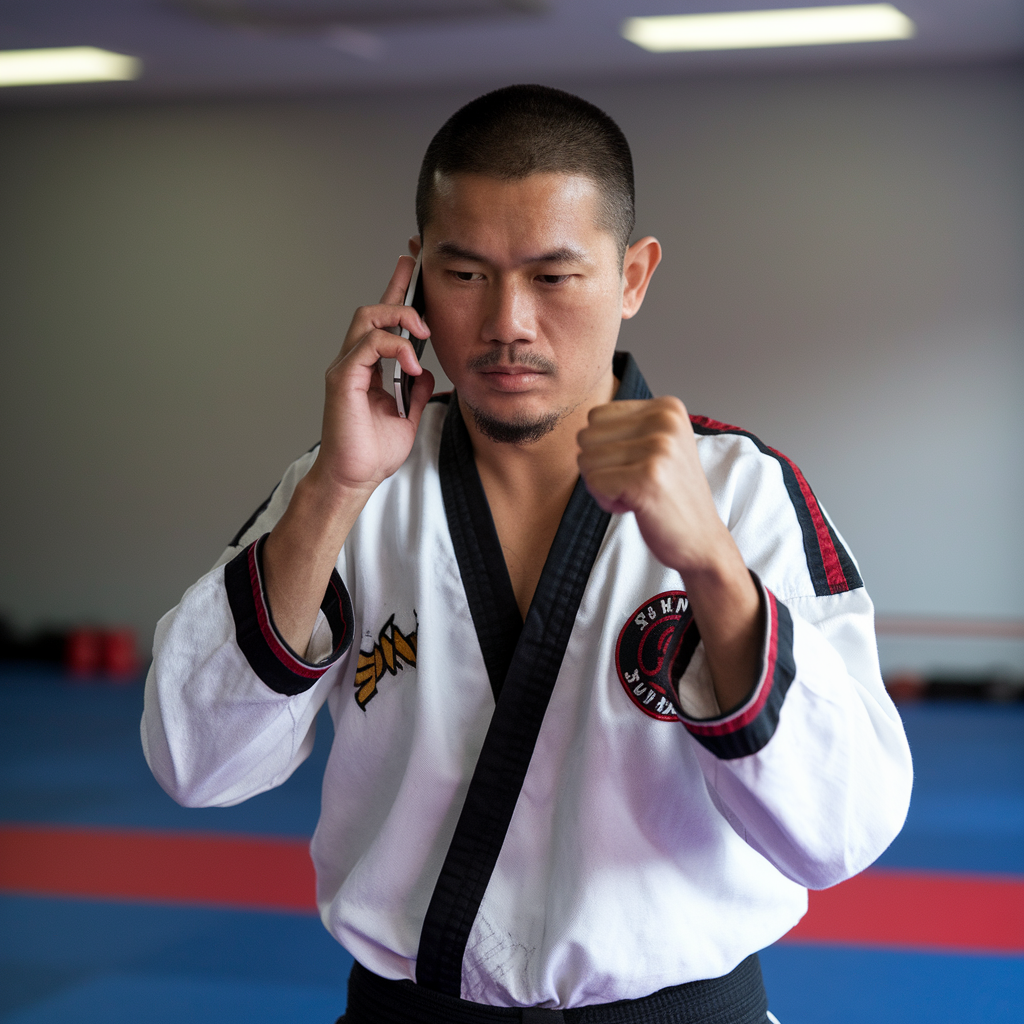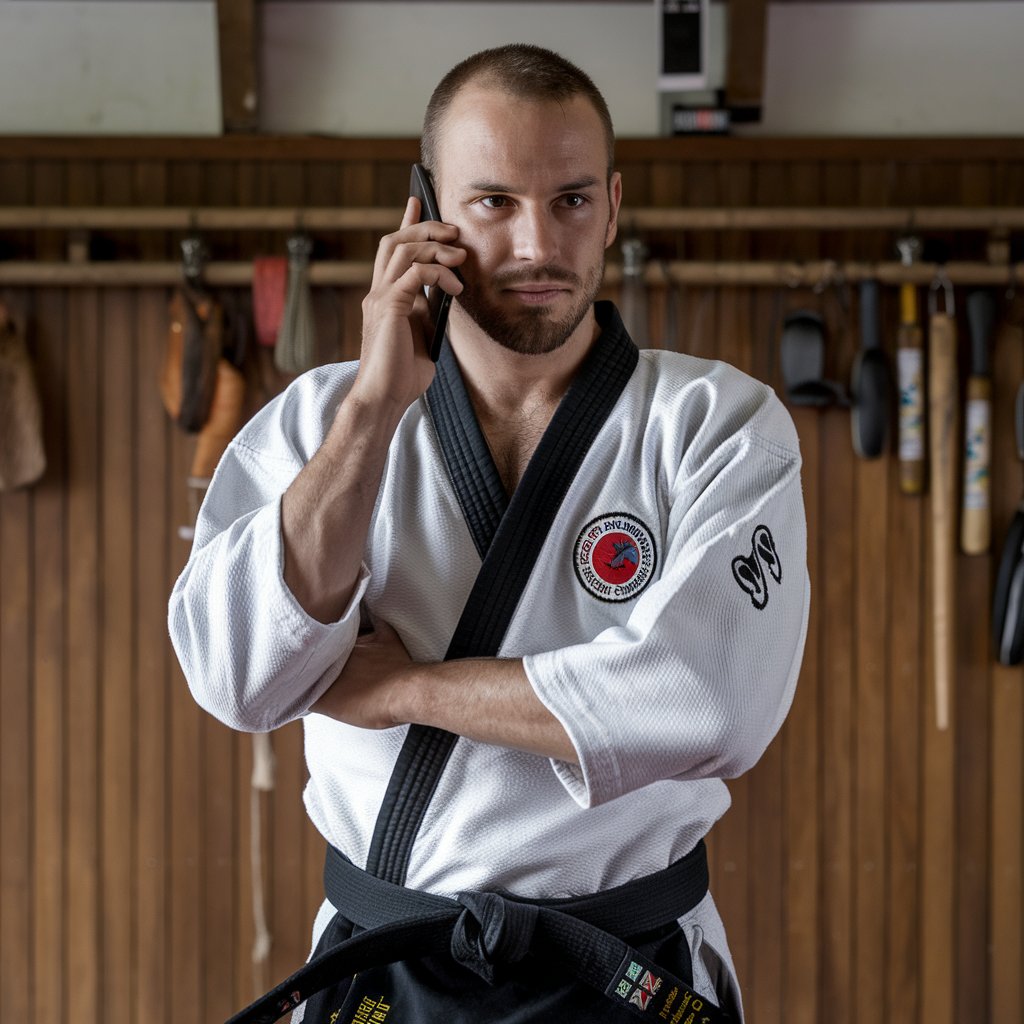
Martial arts is more than just a form of physical training or a means of self-defense. It is a transformative journey that shapes both character and confidence. Whether practiced as a competitive sport or a personal discipline, martial arts instill values like perseverance, humility, and self-assurance. These qualities extend beyond the dojo, influencing how practitioners navigate their personal and professional lives.
From the early days of learning basic techniques to the advanced stages of mastering complex forms, martial arts provide lessons that mold a person’s inner strength and outward poise. In this article, we will explore how martial arts nurture grit—the ability to persevere through challenges—and grace—the capacity to maintain composure and humility—in all aspects of life.
1. Grit: Building Resilience Through Martial Arts
Grit is defined as the passion and perseverance to achieve long-term goals. In martial arts, grit is not just encouraged—it is required. The road to mastery is paved with setbacks, physical pain, and mental challenges. Those who stick with it develop a profound resilience that applies far beyond the training mat.
A. Overcoming Physical and Mental Challenges
Training in martial arts is not easy. It demands intense physical conditioning, mental focus, and emotional control. Practitioners face constant tests of their limits—whether it is enduring hours of sparring, practicing techniques until exhaustion, or bouncing back from defeat.
Example:
Consider a Muay Thai fighter preparing for a competition. The training involves repetitive drills, conditioning exercises, and full-contact sparring. It is grueling and exhausting, but through this process, the fighter develops not only physical toughness but also mental resilience. This ability to push through discomfort extends into real life, where challenges such as career pressures and personal setbacks require the same kind of perseverance.
B. Embracing Failure as a Path to Growth
In martial arts, failure is inevitable. Whether you lose a match, struggle with a new technique, or face an opponent stronger than you, setbacks are part of the journey. Rather than being discouraged by failure, martial artists are taught to embrace it as a learning opportunity.
Example:
A Brazilian Jiu-Jitsu student may tap out repeatedly during training. Instead of seeing this as a defeat, they view each tap as a lesson—an opportunity to refine their technique and develop a better strategy. In life, this mindset fosters the ability to accept mistakes and grow stronger from them.
C. Cultivating Perseverance Over Time
One of the most powerful lessons martial arts teaches is the value of long-term commitment. Progress is gradual, and mastery takes years. Through consistent training and dedication, martial artists learn the power of perseverance—a trait that helps them achieve success in other areas of life.
Practical Application:
- Set long-term goals and break them into small, achievable steps.
- View failure as a stepping stone toward improvement.
- Maintain consistency even when progress feels slow.
2. Grace: Developing Humility and Composure
While martial arts emphasize strength and skill, they also instill grace—the ability to remain calm, humble, and composed. This grace is cultivated through respect for others, self-control, and the understanding that true strength lies in character.
A. Practicing Humility in Victory and Defeat
Martial arts culture is rooted in respect. Whether you win or lose, you are expected to conduct yourself with dignity. This humility allows martial artists to appreciate both their victories and their losses without arrogance or resentment.
Example:
A karate competitor who wins a tournament is taught to bow to their opponent and thank them for the match. This practice emphasizes that success is not solely about triumph—it’s about learning and respecting others. In the professional world, this same humility can enhance teamwork, leadership, and the ability to handle success with grace.
B. Mastering Emotional Control
In the heat of combat, emotional control is crucial. Losing composure can lead to mistakes and poor decisions. Martial artists train to remain calm under pressure—a skill that is invaluable in stressful real-life situations.
Example:
A judoka (judo practitioner) in a high-stakes match must maintain focus and emotional control. If they become frustrated or overly aggressive, they risk making errors. This practice of staying centered translates to remaining calm during workplace conflicts or personal crises.
Practical Application:
- Practice self-reflection to remain grounded and humble.
- Respond to challenges with calmness instead of reacting impulsively.
- Acknowledge the contributions of others and express gratitude.
3. Confidence: Building Self-Belief Through Martial Arts

Confidence is not about arrogance—it’s about believing in your abilities while recognizing areas for growth. Martial arts foster this balanced confidence through tangible progress, self-defense skills, and mental fortitude.
A. Developing Competence and Self-Reliance
As martial artists advance in skill, they gain a sense of competence. Knowing you can defend yourself, solve problems, and handle adversity boosts self-reliance and inner confidence.
Example:
A Taekwondo student who successfully earns their black belt knows they have faced and overcome numerous physical and mental hurdles. This sense of accomplishment fosters self-belief that extends to other life areas, like pursuing new career opportunities or taking on leadership roles.
B. Confidence Through Preparedness
Martial arts teach the value of preparation. Through consistent practice and repetition, martial artists prepare themselves to face unexpected situations. This sense of readiness enhances their confidence in facing life’s uncertainties.
Example:
A Krav Maga practitioner trains for real-world scenarios, such as defending against an attacker. This preparedness not only enhances their physical abilities but also boosts their confidence in handling unpredictable situations.
Practical Application:
- Build confidence by consistently practicing and refining your skills.
- Prepare thoroughly for challenges to boost your sense of readiness.
- Celebrate small victories to reinforce self-belief.
4. Integrating Grit and Grace in Everyday Life
The principles of grit and grace learned through martial arts can positively impact all aspects of life—from career success to personal relationships.
A. In the Workplace
- Resilience: Approach setbacks as opportunities for growth and learning.
- Humility: Recognize the strengths of your team and value their contributions.
- Confidence: Trust in your abilities while remaining open to feedback and new ideas.
B. In Personal Relationships
- Emotional Control: Respond calmly to disagreements and misunderstandings.
- Grace: Treat others with kindness and respect, even during conflicts.
- Perseverance: Commit to nurturing and maintaining healthy relationships.
C. In Personal Development
- Grit: Stay committed to your goals, even when progress feels slow.
- Grace: Accept yourself with compassion while striving for self-improvement.
- Confidence: Embrace challenges as opportunities to grow stronger and wiser.
Conclusion: The Lasting Impact of Martial Arts
Martial arts are more than physical combat—they are a way of life. The lessons of grit and grace shape not only how we train but also how we engage with the world. Through martial arts, we learn to push through challenges with resilience while maintaining humility and composure.
Whether you are stepping onto the mat for the first time or have years of experience, the character and confidence you develop through martial arts will serve you well in every area of life. By embodying both grit and grace, you can face any challenge with courage, dignity, and self-assurance.
So, the next time you tie your belt and bow before training, remember: you are not just building physical strength—you are shaping the character and confidence that will carry you through life.

